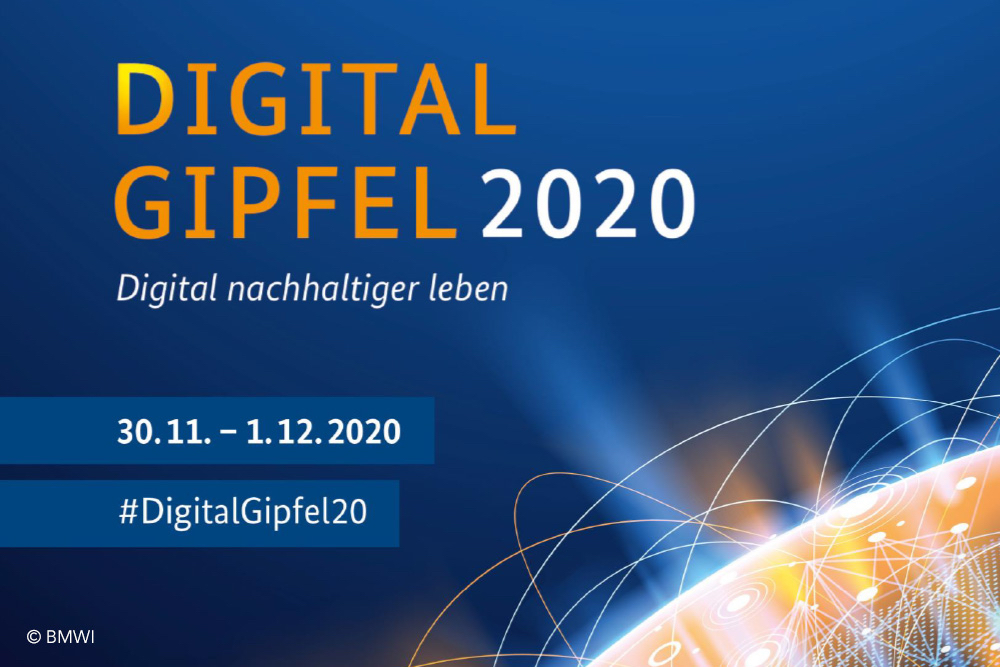Digital Summit 2020: More sustainability by means of digitization
December 9, 2020
The Digital Summit has been organized by the Federal Ministry of Economic Affairs and Energy (BMWI) since 2016. This year’s edition addressed the central topic “More sustainability by means of digitization”. The competence center ML2R participated in the online event, which took place on November 30 and December 1, with contributions from spokespersons Prof. Dr. Katharina Morik and Prof. Dr. Stefan Wrobel.
Maintaining fair competition as well as optimally shaping value added and societal use: In his statement, Stefan Wrobel stressed the need for digital offers and products that follow reliable standards and are certified. According to Wrobel, this could ensure that society, companies and citizens can confidently shape their digital lives and actions. The Competence Center ML2R is driving forward the development of certified Machine Learning (ML) processes that strengthen users’ confidence in ML technologies.
How can AI become more sustainable? Katharina Morik discussed this topic in a panel on November 30. She emphasized the resource-saving potential of Machine Learning methods. At the same time, she pointed to the high energy consumption of the learning processes, for example when storing and training Deep Neural Networks. Within the research area Machine Learning with Restricted Resources, ML2R scientists are conducting research on ML processes that are resource-aware and thus sustainable.
On the occasion of the Digital Summit, the Platform Learning Systems (PLS) has published its yearly progress report. In a guest article, Katharina Morik, co-head of the PLS Working Group “Technological Enablers and Data Science”, summarizes the main foci of German AI research. According to Morik, although Germany is well-positioned internationally, long-term coordinated investments in European AI research are needed. Katharina Morik, who coordinates Germany’s AI cooperation with France, hereby referred to the close German-French research cooperation, which is actively promoted by the German competence centers.
The progress report (in German) is available online: Shaping Artificial Intelligence to the Benefit of Society
Contact:
Ann-Kathrin Oster
TU Dortmund University
Otto-Hahn-Str. 12 / R4.022
44227 Dortmund
Germany


